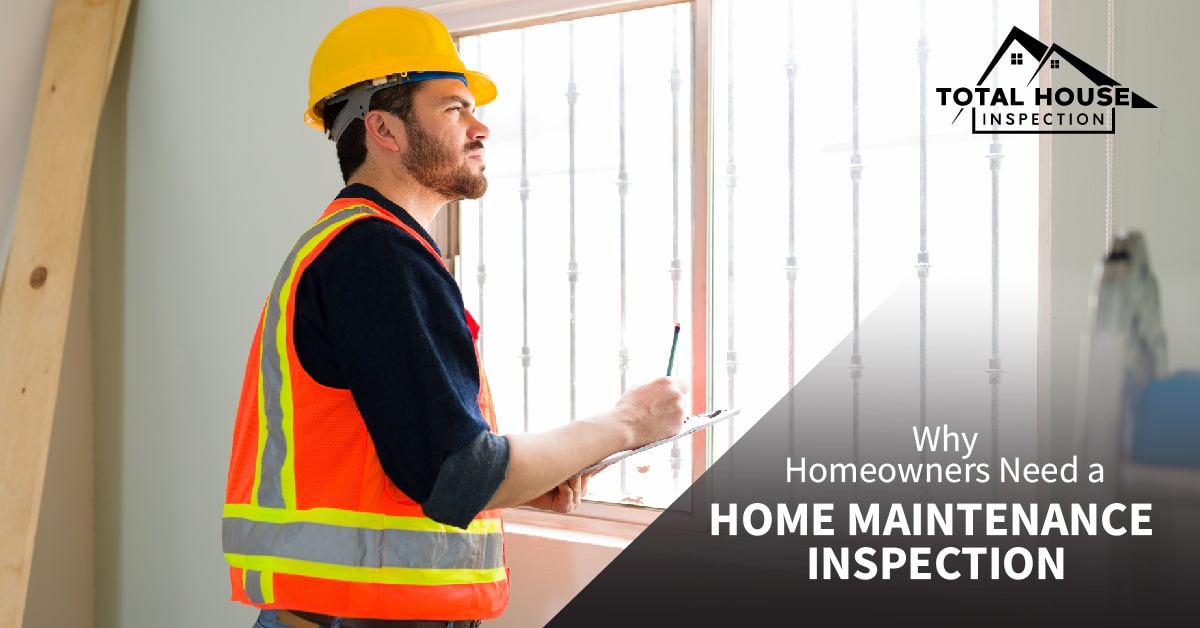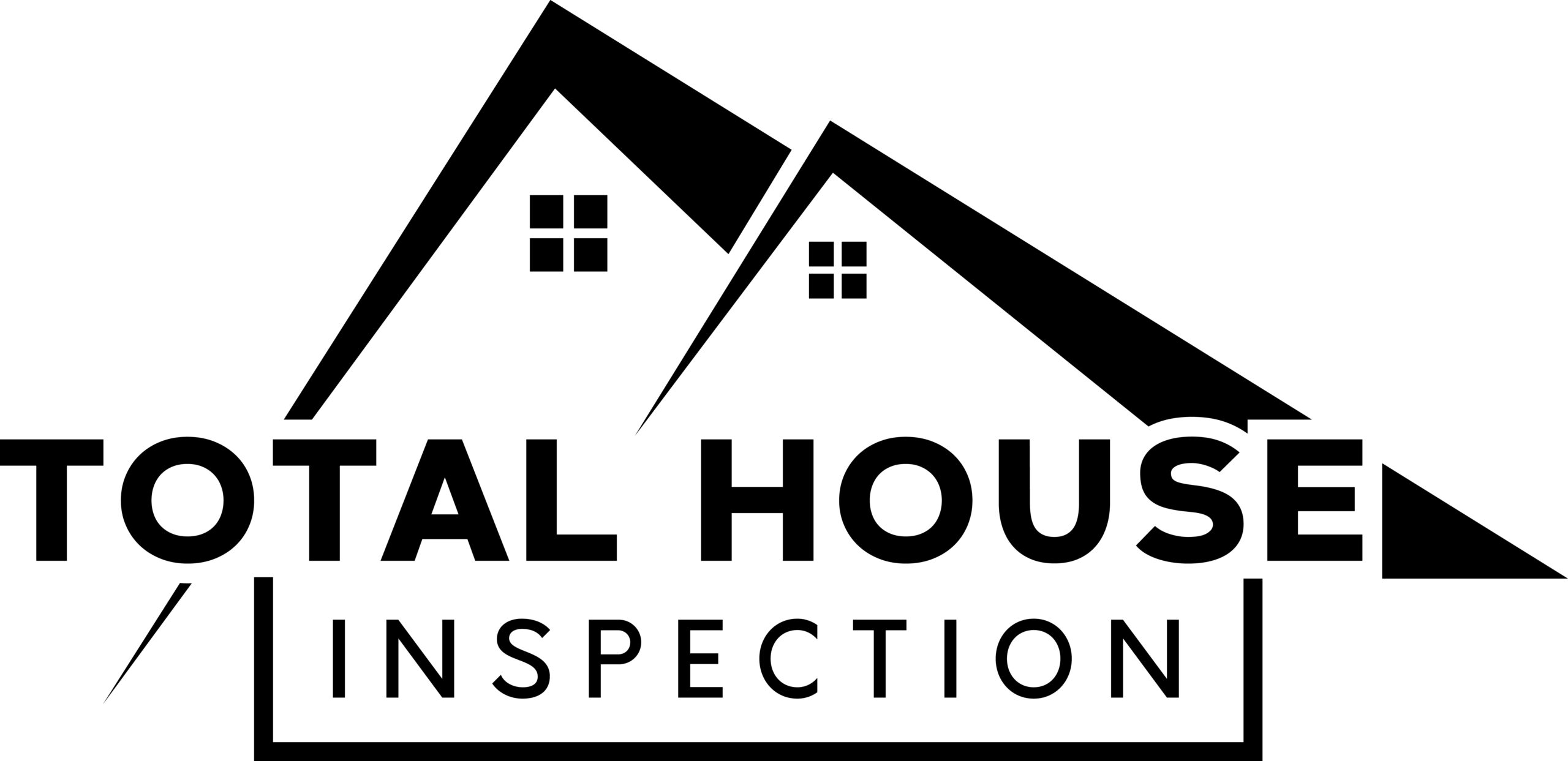We won't be overstating if we call home inspections a…

Why Homeowners Need a Home Maintenance Inspection
Introduction
Owning a home is a significant achievement, but it also comes with a set of responsibilities. Just like any other valuable asset, a home requires regular upkeep to ensure its longevity, safety, and overall functionality. One crucial aspect of maintaining a home is conducting regular home maintenance inspections. It sounds like a hefty practice, but it isn’t when you choose Total House Inspection‘s reliable and affordable services.
Through this blog, we will guide you through what is home maintenance, what it entails, and why homeowners should never skip it. Moreover, we will help you understand the process and benefits of home maintenance inspections.
What Is Home Maintenance?
The activities and chores necessary to keep a home in top condition are all included in home maintenance. This covers regular maintenance tasks like cleaning, fixing, and maintaining different home systems, including HVAC, plumbing, electricity, roofing, and more. Effective home care keeps everything in good shape, raises the value of the house, and makes for a secure and comfortable home.
Understanding Home Maintenance Inspection
A home maintenance inspection is a comprehensive evaluation of the state of a residential property, usually carried out by a qualified inspector. Its goal is to find any problems with the property—current or potential—that might need fixing or upkeep. Home maintenance inspections are usually performed for several reasons:
Routine Maintenance
Regular inspections help homeowners stay on top of maintenance tasks and address minor issues before they escalate into major problems. This can extend the lifespan of various components in the home.
Property Value
A property’s worth can be increased over time by keeping it well maintained. Inspections reveal areas that could be improved to increase the appeal of the property.
Safety
Identifying safety hazards is crucial to protecting occupants from potential harm. Inspections can uncover issues such as faulty wiring, gas leaks, or structural weaknesses.
Energy Efficiency
An energy-efficient home typically has better upkeep. Inspections can identify areas that might be improved to save energy and lower electricity costs.
Preventive Measures
Homeowners can use inspection reports to prioritize repairs and upgrades, preventing larger, costlier issues down the line.
During a home maintenance inspection, the inspector typically evaluates various aspects of the property, including but not limited to:
Structural Components
This includes the foundation, walls, roof, and other structural elements to check for signs of damage, deterioration, or shifting.
Exterior
Inspection of the exterior may cover siding, windows, doors, gutters, decks, and landscaping. The goal is to identify issues like rot, water damage, or poor drainage.
Interior
Inspectors evaluate things like the walls, ceilings, floors, plumbing fixtures, electrical systems, and appliances inside the house. They may also check for proper ventilation and insulation.
Mechanical Systems
This entails assessing the efficiency and security of ventilation, cooling, and heating systems. Water heaters, ductwork, and filters may also be inspected by inspectors.
Electrical Systems
The inspection includes checking the electrical panel, outlets, switches, and wiring for any potential hazards or code violations.
Plumbing Systems
Inspectors check the operation, corrosion, and leaks of plumbing fittings, pipes, drains, and water supply systems.
Roof
A thorough examination of the roof for signs of damage, leaks, or wear and tear is conducted.
Attic and Crawl Spaces
These areas are inspected for insulation, ventilation, and any signs of pests or water intrusion.
After the inspection, the homeowner receives a thorough report explaining the findings, which may include suggestions for maintenance, upgrades, or repairs. This report can be used as a helpful resource when organizing and ranking home renovation projects. Get some tips on home improvement here.
When to Consider Maintenance Inspection?
Ideally, homeowners should schedule a maintenance inspection at least once a year. However, there are specific situations when a maintenance inspection is particularly crucial:
Seasonal Changes
Seasonal transitions, such as spring and fall, are excellent times for maintenance inspections. These changes in weather can impact different parts of the house, and an inspection can address any emerging issues.
After Severe Weather
Following severe weather events like storms, heavy rains, or snowstorms, a maintenance inspection can reveal any damage that may have occurred.
Before Selling
A maintenance inspection might help you find problems before you place your house on the market if you intend to sell it.
Benefits of Home Maintenance Inspection
Home maintenance inspections offer several important benefits to homeowners. Here are some of the key advantages:
Early Problem Detection
Regular home maintenance inspections help identify minor issues before they escalate into major and costly problems. Addressing these issues early can save homeowners from more extensive repairs down the line.
Extended Property Lifespan
Identifying and addressing maintenance needs promptly can extend the lifespan of various components in a home, such as roofing, HVAC systems, appliances, and structural elements.
Cost Savings
By catching problems early and addressing them before they worsen, homeowners can avoid expensive repairs or replacements that might have been necessary if issues were left unresolved.
Safety Assurance
Inspections can uncover safety hazards such as faulty wiring, gas leaks, mold growth, or structural weaknesses, allowing homeowners to take corrective actions to keep their property and occupants safe.
Energy Efficiency
Home maintenance inspections can identify areas where energy efficiency can be improved, such as inadequate insulation, air leaks, or outdated HVAC systems. Making these improvements can lead to energy savings and reduced utility bills.
Preservation of Property Value
Regular maintenance helps preserve and even enhance the value of a property. A well-maintained home is more appealing to potential buyers and retains its value better over time.
Customized Maintenance Plans
Inspectors often provide recommendations and customized maintenance plans based on the specific needs of the home. This can help homeowners prioritize tasks and allocate resources effectively.
Effective Budgeting
With insights from the inspection report, homeowners can create a more accurate budget for ongoing maintenance and repairs, helping them allocate funds appropriately.
Documentation
A detailed inspection report serves as a valuable record of the home’s condition over time. This can be useful for insurance claims, property assessments, or when selling the home.
Negotiation Tool
If homeowners plan to sell their property in the future, a history of regular maintenance inspections and documented repairs can be used as a negotiation tool to demonstrate the property’s well-maintained status.
Timely Home Improvements
Homeowners can use inspection reports to plan and prioritize home improvement projects. This ensures that upgrades are made when needed and that resources are invested wisely.
Conclusion
This blog provides an overview of what home maintenance is, why it is important, and how it can be done. It also provided insight into the various aspects of a home maintenance inspection. If you are interested in learning more about our home maintenance inspection services, contact Total House Inspection today.



